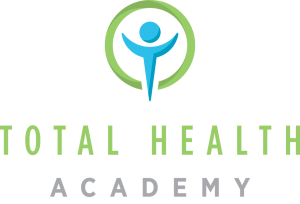
It’s 2018 and I am dumbfounded by the number of adult new patient appointments that begin in the hygiene chair. We all recognize this is an ‘old school’ practice, but maybe we still secretly believe it’s the right thing to do for our patient. Maybe we somehow believe it’s financially beneficial to the practice. Neither of these could be further from the truth.
The dental examination of today is all about the patient of today. From a health standpoint, the patient of today is more complicated than ever! Fortunately, the mouth is an exquisite indicator of sickness or health. Crowded teeth and small jaws, a tongue that is low, lazy and blocking our breathing tube, continual tooth decay, acid erosion, cracked/worn teeth, inflamed gum tissue and parched dry mouths are all warnings that a body is ailing. If we can take our rightful place at the table in the root cause analysis of disease, dentists and hygienists will perhaps become the most significant players in today’s preventive healthcare arena.
Beginning with a thorough examination (1.5 to 2 hours long, not including a prophy), we can allow time for truly listening to our patient. Their story matters! A dedicated interview and examination, allows us to build trust, reveal symptoms and signs of instability, diagnose disease, present a treatment plan that registers and prioritizes the patient’s long-term desires, secure financial commitment and schedule appropriately.
Clinically, a thorough exam allows us to go beyond oral destruction to discuss the many links between oral disease and systemic disease. This includes a good medical and dental health history review, food and sleep inquiries, pharmaceutical review, radiographic examination, photographic series, oral cancer screening with discussion of HPV-OPC, TMJ/facial muscle assessment, airway evaluation, periodontal examination, and tooth-by-tooth dental analysis.
Based on revealed signs and symptoms, we can perform any necessary adjunctive tests that add diagnostic value. These results are two-fold by becoming critical in the root cause analysis of disease, and creating patient buy-in/acceptance. We find patients will work so much harder when there are measurable results. What kinds of tests are appropriate? A finger stick blood test for pre-diabetes/diabetes, salivary diagnostics for significant periodontal pathogens, plaque swab test for caries risk, salivary testing for 9 strains of candida, screening for food sensitivities, a genetic saliva test for predisposition to periodontal disease and CVD, HPV detection in saliva, and the list goes on.
A thorough examination instills patient trust, which clearly increases case acceptance for complete health dentistry. Adjunctive tests that get to root cause help both you and your patient secure better outcomes as well as credit you with enhancing their overall health.
How does this impact your bottom line? From a business standpoint a thorough examination makes total sense. Beyond deepening trust and improving case acceptance, it procures better outcomes, drastically increases word-of-mouth referrals of health-valuing new patients, enhances your reputation in the community, builds co-referral relationships with other medical professionals, stabilizes your dentistry—and as a bonus, significantly increases revenue from the tests themselves.
Don’t worry about patient approval! The minute you share WHY the practice of total health dentistry benefits them, first-time patients will admire your request for this personalized exam. In the end they will thank you for taking the time. After all, who else in healthcare is giving this time to them? A dedicated examination may seem like a big change at first, but once you begin, you’ll never look back.
If you are intrigued by this detailed examination, learn more by visiting Total Health Academy on the OralDNA® Protocol Directory.
For more information on how to become an OralDNA Provider – scan HERE: 
- Why Join the American Academy for Oral Systemic Health (AAOSH)? - July 5, 2024
- APDP: Pillars for Success in Today’s Private Dental Practice - September 22, 2023
- Why Join the American Academy for Oral Systemic Health (AAOSH)? - May 21, 2021
